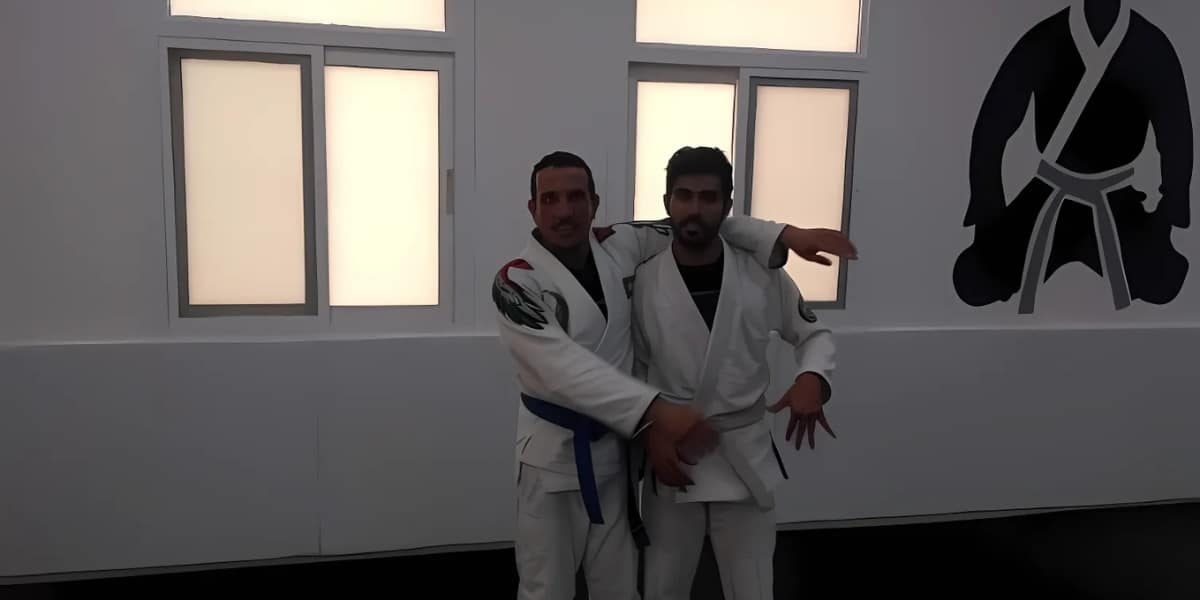By: Thomas Corveddu
Brazilian Jiu-Jitsu (BJJ) is more than just a martial art; it’s a lifestyle, a philosophy, and a crucible for character development. The success of any BJJ academy hinges on the quality of its coaching, and few coaches embody the dedication and nuanced understanding of the sport like Julio Garcia. The philosophy and strategies that he employs set him apart as he cultivates the next generation of BJJ stars.
Coach Garcia firmly believes that a strong foundation is paramount. His training regimen isn’t about flashy techniques or rapid-fire sparring sessions but mastering the fundamentals. He emphasizes proper posture, grip control, and the fundamental principles of leverage. He stresses that “a house built on shaky foundations will eventually crumble.”
This approach isn’t just theoretical; it’s actively demonstrated through meticulous drills and repetition. Students are not merely shown techniques but guided through the ‘why’ behind them, encouraging understanding rather than memorization. This focus begins at the youth level and goes up to those looking to achieve fitness goals or learn self-defense methods.
“With the youth groups, we focus on the movements and respecting your mat mate,” he explains, “as the groups get older, we start to shift looking at competition and self-defense from possible bullies.” For each level and group, the coach determines what the focus should be to get the most out of his time with them.
Garcia recognizes that BJJ is more than just physical prowess. He emphasizes the importance of mental fortitude, discipline, and respect. His training extends beyond the mat to encompass life skills. Encouraging his students to develop resilience, perseverance, and a “never give up” attitude. “I teach my students that BJJ is like life. You can’t win every battle, but you can learn from all of them.” This holistic approach fosters a sense of community and camaraderie among students, creating a supportive environment where they learn to push their limits physically and mentally.
Recognizing that every student learns and develops at a different pace, Coach Garcia employs a personalized approach. He tailors his training methods to suit each individual’s strengths, weaknesses, and learning styles. He assesses each student’s progress meticulously, offering tailored feedback and adjustments to their training routines. “At the end of each session, we discuss what went wrong and how to improve if they ever encounter that situation again.” This personalized approach is crucial, as it fosters a sense of empowerment and ownership in the training process.

‘Rolling’ or sparring is a critical component of BJJ training, and Coach Garcia emphasizes the importance of both controlled and competitive sparring. He doesn’t just focus on winning; he stresses the importance of learning from victories and defeats. Guiding students to analyze their performance, identify areas for improvement, and adapt their techniques accordingly.
Staying current is paramount for Garcia, who constantly watches the latest tournaments. “I learn from watching others compete and how they deal with certain situations,” he explains, “even if it isn’t something I have done, I can introduce it to my students as an alternative.” He also implements film study in his classes to help keep them more fun and digestible.
Coach Garcia instills a culture of mutual respect within his classes. He emphasizes the importance of sportsmanship, both on and off the mat. He stresses that BJJ is a journey, not a race, and fosters a supportive environment where students learn from each other, celebrate victories and offer encouragement during setbacks. This emphasis on respect is crucial in creating a healthy and productive learning environment. He actively promotes a sense of camaraderie among his students, encouraging them to support each other and celebrate each other’s accomplishments.
Always looking for new motivation, Garcia looks to the athletes he has trained and the other coaches to borrow ideas from them. “The biggest takeaway I have from training people at a high level is that repetition is key,” he says. Doing the right thing repeatedly trains the brain so the body responds naturally when confronted with how to avoid a pin or submission. But beyond all else, what the coach instills in his students is that BJJ is a team sport. “Something I always repeat to my students is that a champion is never a champion alone; there is always a white belt who helps you get there.”
Coach Julio Garcia epitomizes the ideal BJJ instructor. His approach to training is not just about technique; it’s about fostering well-rounded individuals who can apply the discipline and resilience learned on the mat to all aspects of their lives. By emphasizing fundamentals, mental fortitude, and personalized coaching, Coach Garcia is shaping champions and individuals who embody the true spirit of BJJ. His dedication to cultivating a culture of respect and camaraderie within his academy is a testament to his commitment to his students’ long-term growth and development. His methods provide a blueprint for success, not just in BJJ but in life.
Published by Zane L.

















